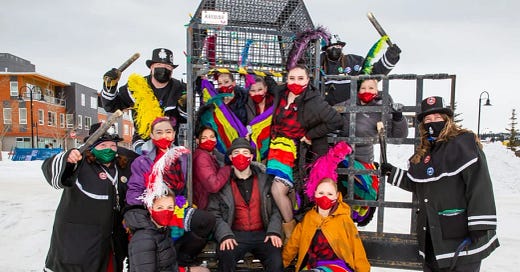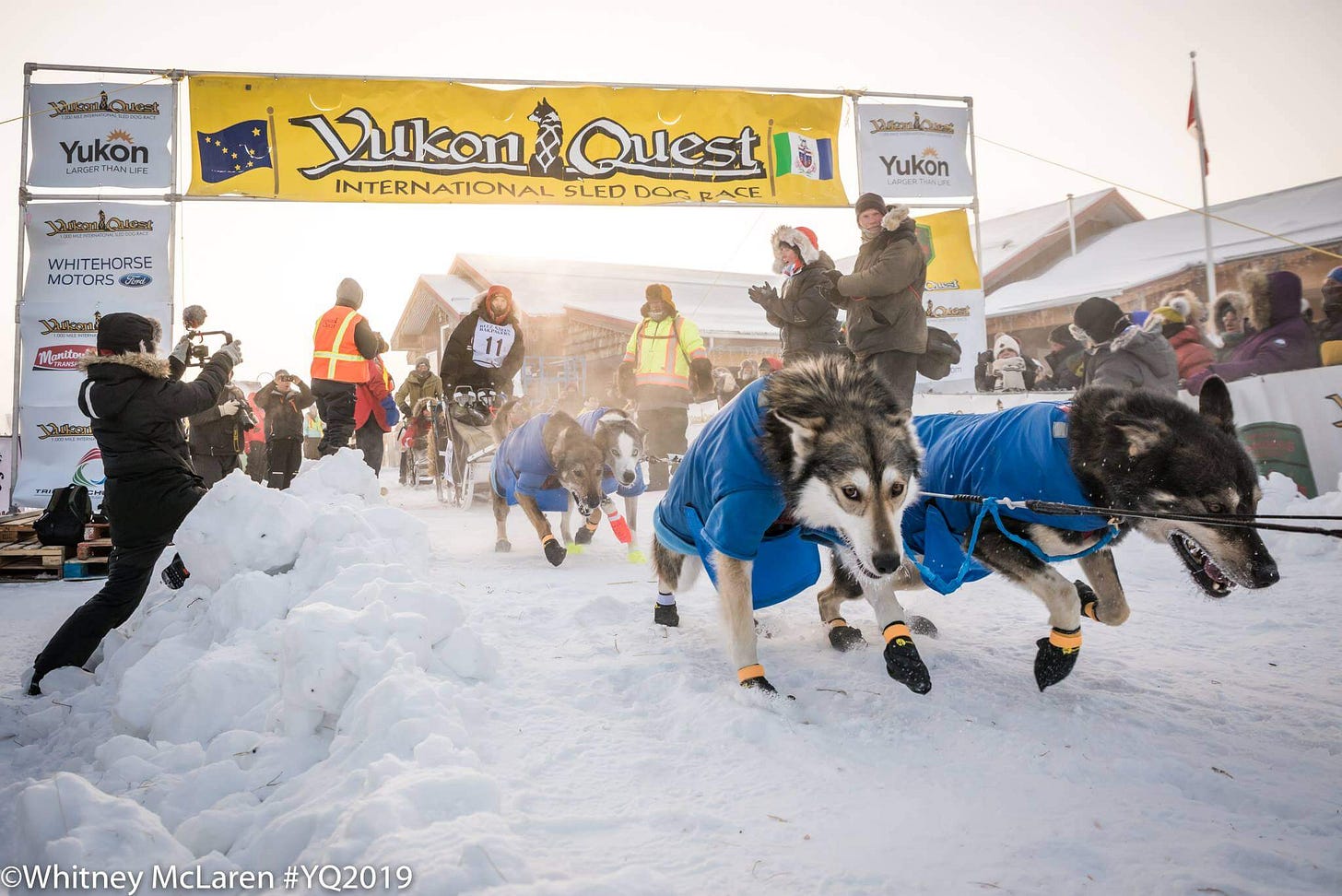Rendezvous for all of yous.
This February, we’re going to party like it’s 1899 and colder than a penguin’s butt.
Because the Yukon is cold and isolated, people there have had to devise ways to stay sane in the worst part of the winter. The Yukon Sourdough Rendezvous is one of those ways. In the late 1800s, people flooded the Yukon during a gold rush, hoping to make it rich quickly and get the heck out. Back then, you were more likely to meet a bear than a person in the Yukon, and there were no creature comforts to speak of. Nobody had even imagined the possibility of a cheeseburger, let alone getting one handed to you in 5 minutes from a pimply teenager at a drive-thru window.
People who survived an entire winter in the territory earned some street cred. They probably also smelled horrible. These winter-hardened pioneers became known as Sourdoughs, while the newbies, not yet acquainted with frostbite or cabin fever, were called Cheechakos. If a Cheechako didn't buy enough food, or a grizzly fancied them for a snack, they wouldn't even make it past Christmas, let alone spring.
The Sourdough Rendezvous is held in February, the coldest time of year. Nobody wants to leave their homes, and sometimes they can't do it anyway because their cars won't start. To try and cheer everyone up and entice people outdoors, or at least to the bar, Whitehorse holds a few weeks of old-timey competitions, parties, and boozed-up revelry. You bet that copious alcohol consumption is a marker of Sourdough Rendezvous. It's a part of living in the Yukon, period.
During Rendezvous, fake policemen called the Keystone Kops roam the city in a black truck with a tall, wrought-iron cage in the back. They were looking for two things: women and girls without a garter showing, a colorful satin scrunchie that dancehall ladies used to keep their stockings up, and men had to grow a beard. Otherwise, they'd throw you in the cage and drive you around the block a few times for the enjoyment of a few onlookers hastily dashing from a warm building to their running vehicles. Considering it could be -45 degrees Celsius outside, it might prompt a dude to consider growing a beard to avoid freezing to death.
My parents weren't huge fans of all the partying that came along with Rendezvous. Getting wasted and dancing in risqué outfits isn't something most pastors partake in. But the one thing our family liked to do was see the dog sled teams of the Yukon Quest. The Quest was a 1000-mile dog sled race from Whitehorse to Fairbanks, Alaska, that alternated directions every year (the race continues under the same name but no longer crosses the Yukon/Alaska border). When the race started in Whitehorse, we'd head downtown to see the teams off.
One end of Main Street was blocked off, and snow was dumped across the road for the sleds. Then, the sled teams would roll in. The mushers drove heavy-duty trucks with what looked like tiny wooden dog apartments, cubbies stuffed with straw with swinging locking doors, stacked in their beds. You could hear the howls and yips of eager huskies from miles away. These dogs were ready to run, leaping excitedly, straining at their leashes. They ran in booties, colorful dog socks that protect the pads of their feet from getting cut by ice. When it came to their turn to run, they'd surge forward together, their blue eyes wild with joy.
After they passed out of sight, and over the next few weeks, we'd occasionally tune into the local news, CBC North, for updates on the mushers as they'd arrive at checkpoints along the trail. They always looked exhausted, blinking in the floodlight from the TV cameras. Peering out from behind fur-lined hoods, their beards heavy with clinging ice, their skin chapped and stung red from whipping winds. I remember thinking it was a crazy hobby: acting like it was still 1855, losing toes, getting attacked by an angry moose, and sleeping in a snowbank with a can of beans in your belly.






I love learning all of these things about your hometown!